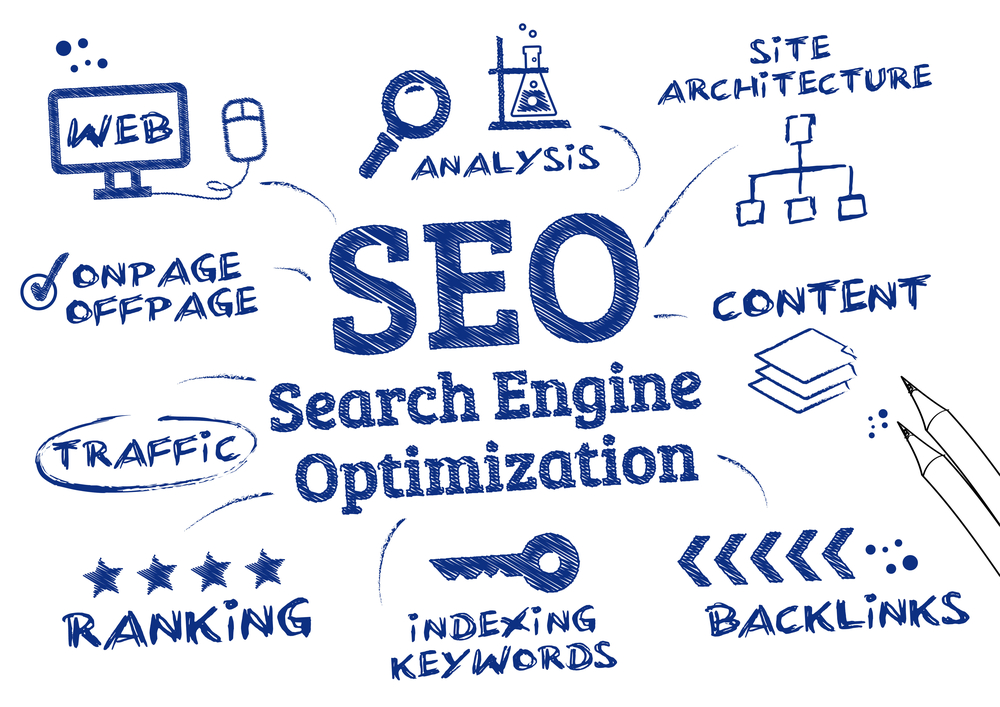
Marketing is all about getting in front of as many people as possible, with as little effort as possible. With a bit of knowledge, SEO can help you achieve this goal. SEO has been around nearly as long as the internet itself.
If you have ever searched for something online, especially on Google, then you’ve seen this practice in action. Search engines list results based on what they think will be most relevant for a given search.
So what is SEO?
At its core, search engine optimization (SEO) is the practice of ranking higher in Google. It can also refer to optimizing for other search engines like Bing or Yahoo.
More specifically, SEO is the process of optimizing the online visibility of a website or a web page in a web search engine’s unpaid results. It’s often referred to as natural, or organic results. SEO can also include paid search results also known as PPC, the acronym for pay-per-click.
SEO not only boosts your website’s online visibility but is also an important element of effective content marketing.
How Does SEO Work?
Search engines have sophisticated algorithms to determine the ranking of pages in their search engine results. The higher you rank on these sites, the more users will click on your page resulting in potential customers for your business.
Factors that are considered by these algorithms include keywords, links, social media mentions, and authority or reputation of the websites linking back to your page.
As you can imagine, it’s a pretty complicated process. That’s why SEO is generally divided into two subcategories:
On-page SEO: This refers to how well a page or website is optimized for search engines. Elements of on-page SEO include the copywriting, title tags, meta tags, image alt text/titles, and URL structure.
Off-page SEO: This refers to how other sites are likely to rank your site in the search engines. Examples of off-page SEO include link building, testimonials and reviews, mentions on authority sites/blogs, and social media sharing.
What Do Search Engine Optimization Experts Do?
Search engine optimization experts use a variety of free and paid tools to improve your site’s rankings in the search engines. Unlike some other online marketing strategies that focus on consumer awareness or changing human behavior, SEO is primarily about providing information to web crawlers.
SEO experts also make sure that search engines are finding all of your website’s pages by using robots.txt files and other techniques. They can even help you with sitemaps to explain your site’s architecture.
Why is SEO Important for Marketing?
1) SEO is a great way to reach prospects
2) SEO allows you to market your business in the exact place your target audience is looking for that information.
3) Inbound links from authoritative, high-quality sites will help improve your site’s authority and ranking with the search engines. This can result in higher click-through-rates (CTR) and lead conversions.
4) Good SEO is critical in establishing your brand. If your website has a high Google page rank or an authoritative social media presence, this can help establish the reputation of your business with potential customers.
Final Thoughts
The most important element of search engine optimization is making sure that people find you when they search for the keywords related to your business. This helps build brand recognition and allows you to reach prospects at the exact moment they are looking for your products or services.
If you’re interested in learning more about SEO, check out other articles on our website.
